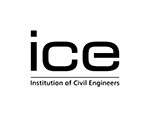
Higher/Degree Apprenticeship Civil Engineer
BEng(Hons) Civil Engineering
Page last updated 15 April 2024
Introduction
Study our Civil Engineer apprenticeship and you'll gain the BEng(Hons) Civil Engineering degree and professional qualification needed to become a practicing civil engineer. Benefit from industry-standard software, well-equipped laboratories and experienced teaching staff.
Why study for a Civil Engineer apprenticeship?
Developed alongside leading employers, the Civil Engineer apprenticeship (Level 6) will give you in-demand professional engineering skills. As the course is delivered as an apprenticeship, training is funded by your employer.
This apprenticeship will enable you to progress your engineering career by gaining a university degree and professional qualification (IEng) while remaining in the workplace.
Why UWE Bristol?
Learn in modern facilities with new studios, teaching rooms and well-equipped laboratories for concrete and environmental science, hydraulics, environmental physics, earth sciences and surveying technology.
You'll also have access to industry-standard geographic information systems (GIS), computer aided design (CAD), structural analysis and statistical software in our computer labs.
This mix of traditional and creative learning environments will help you learn essential knowledge and real-world skills, making you an asset to your organisation.
Learn more about UWE Bristol's facilities.
Benefits to your employer
This apprenticeship will strengthen and develop your engineering skills while you remain in the workplace. This enables your employer to retain your talent and benefit from your new expertise. As a qualified employee, you'll be a capable and confident member of your workforce.
As a professional civil engineer, you'll apply mathematical, scientific and engineering principles, methods and modelling to the design, construction and management of civil engineering projects. You'll be adept at communicating effectively and develop key analytical and professional skills that will help you succeed in your work.
You'll test and apply your new knowledge in the workplace throughout the course - so your organisation will benefit from the beginning.
Careers
On successful completion, you'll gain a BEng(Hons) Civil Engineering degree and qualify as an Incorporated Engineer (IEng) after passing your End-Point Assessment. This means you'll be able to practice as a professional civil engineer.
In addition to supporting your development in the workplace, this apprenticeship will help you to understand the career landscape in your sector and plan for your longer-term ambitions. Our award-winning Careers Service is on hand to give you independent advice and guidance at any point in your studies.
Course details
Content
This apprenticeship has been designed to teach key engineering concepts alongside vital professional skills. The structure of the course provides a balance between theory, practice and design.
The optional modules listed are those that are most likely to be available, but they may be subject to change. Once you have successfully achieved your modules you will progress to the End-Point Assessment to complete your apprenticeship.
Year one
- Surveying
- Engineering graphics and communication
- Construction and environmental materials
- Civil engineering technology and design.
Year two
- Mathematics for civil and environmental engineering
- Engineering principles for civil engineering
- Civil and environmental engineering field study
- Project and risk management.
Year three
- Application of mathematics for civil and environmental engineering
- Structural analysis
- Design of structural elements
- Soil mechanics.
Plus, one optional module from:
- Hydrology and flood risk estimation
- Engineering geology design project
- Traffic engineering design.
Year four
- Hydraulics and engineering applications
- Infrastructure design and implementation project
- Strategic issues in engineering
- Advanced structural analysis.
Final year
- Individual civil engineering project
- Computational civil engineering
- Geotechnics.
Plus, optional modules (the number will depend on your credit requirements) from:
- Environmental assessment
- Hydraulic modelling for flood risk management
- Traffic safety and management.
Learning and Teaching
Part-time day release over five years, with two additional block weeks.
Our lecturing staff provide a friendly environment for learning. They're active researchers or industrial consultants and stay up to date with advances in the field.
See our glossary of teaching and learning terms.
Assessment
You'll be assessed through a combination of exams and coursework. Exams take place at the middle and end of each year. Coursework may consist of essays, reports, presentations, teamwork exercises and progress tests.
Learn more about our assessments.
Features
Professional accreditation
This degree is accredited by the Joint Board of Moderators (JBM) comprising the Institution of Civil Engineers, Institution of Structural Engineers, Institute of Highway Engineers, the Chartered Institution of Highways and Transportation and the Permanent Way Institution on behalf of the Engineering Council as fully satisfying the academic requirement for Incorporated Engineer (IEng) and partially satisfying the academic requirement for Chartered Engineer (CEng).
On behalf of the Engineering Council, the JBM has accredited this degree as fully satisfying the academic requirement for Incorporated Engineer (IEng) and partially satisfying the academic requirement for Chartered Engineer (CEng).Successful learners will qualify as an Incorporated Engineer (IEng) once they have successfully completed the End Point Assessment. This degree partially meets the academic requirement for registration as a Chartered Engineer (CEng). Candidates must hold a Master's or doctorate accredited as further learning for CEng to hold accredited qualifications for CEng registration. See the JBM website for further information on further learning programmes for CEng.
Life
Health and Wellbeing
We provide support in the way you need it.
Bristol
A stunning city for student living with all the qualities to make you want to stay.
Sports, societies and activities
There is more to your experience here than study. Choose to make the most of it and try new things.
Sustainability
It is embedded in our culture, teaching and research.
Campus and facilities
Discover our campuses and the wealth of facilities provided for our students.
Entry
Typical offers
- Tariff points: 112
- GCSE: GCSE: Grade C/4 or above in English and Mathematics, or equivalent (we accept Functional Skills Level 2 in English and Maths).
- A-level subjects: Grade C or above in Mathematics plus a pass in one of the following subjects: Biology; Chemistry; Computing/Computer Science; Design and Technology; Electronics; Engineering; ICT; Further Mathematics; Music Technology; Physics; Statistics. Mathematics requirement can also be met by the Cambridge Pre-U Mathematics at Merit 3. Points from A-level General Studies and AS-level subjects (not taken onto full A-level) can be included towards overall tariff. You must have a minimum of two A-levels.
- Specific subjects: Maths requirement can also be met by the Cambridge Pre-U Mathematics at Merit 3.
- EDEXCEL (BTEC) Diploma: One of the following BTEC Diplomas: Aeronautical Engineering; Applied Science; Construction and the Built Environment; Electrical/Electronic Engineering; Engineering; Land-based Technology; Manufacturing Engineering; Mechanical Engineering; or Operations and Maintenance Engineering. Must include Merit in one of the following units: Further Engineering Mathematics or Further Mathematics for Construction. Please list the units that you are taking in your application.
- Access: Achievement of the HE Diploma; to include 30 Level 3 credits at Merit including 15 in Mathematics and 15 in another science or technology subject. Please list the units that you are taking in your application.
- Baccalaureate IB: To include a minimum grade of 5 in higher level Mathematics and a pass at higher level in one of the following subjects: Biology, Chemistry, Computer Science, Design Technology, Physics, Environmental Systems and Societies.
- Irish Highers: H2 in Mathematics plus a pass in one of the following subjects: Biology; Chemistry; Engineering; Physics; Technology.
- T Levels: Grade C in A-Level Mathematics, in addition to your T Level qualification.
Entry requirements
Accredited Learning
If you have a Higher National Certificate (HNC), Higher National Diploma (HND) or Foundation Degree in a closely related subject, we may be able to credit you with some of the modules in our course and potentially reduce your course duration. In your application, please give full details of all your qualifications (including modules and units).
ESFA eligibility requirements
To study an apprenticeship, you need to:
- be aged 16 years or over
- be an EEA citizen (with Right to Work in the UK) and not be in any other kind of full-time education (including being enrolled on any other apprenticeship programme)
- be employed (for at least the full planned duration of your apprenticeship) in a role that is linked to the appropriate industry for the apprenticeship training
- receive at least legal minimum wage for apprentices (wages vary depending on experience, employer and level or type of apprenticeship)
- commit to at least 6 hours per week of apprenticeship training during your normal working hours
- have support from your employer, including a mentor/line manager. Your employer is also responsible for funding your apprenticeship.
Find out about eligibility for apprenticeship funding.
We use the UCAS Tariff system to make offers to applicants. You can use the UCAS Tariff Calculator to convert your qualifications and grades into points.
How to apply
Employed
If you’re interested in applying and have the support from your employer, speak to your line manager and/or HR team in the first instance for approval. Your employer will contact us so we can send you an application link.
Unemployed
If you’re not employed, you can use the following tools to find an apprenticeship vacancy with an employer:
- Employer’s careers page
- Find an Apprenticeship
- UCAS Apprenticeship search
For more guidance on higher and degree apprenticeship applications.
For further information
For course-specific enquiries, please contact the Programme Leader.
For all other enquiries, please email our Apprenticeship Hub apprenticeships@uwe.ac.uk or call +44 (0)117 32 84888.
Read more about Higher and Degree Apprenticeships.





